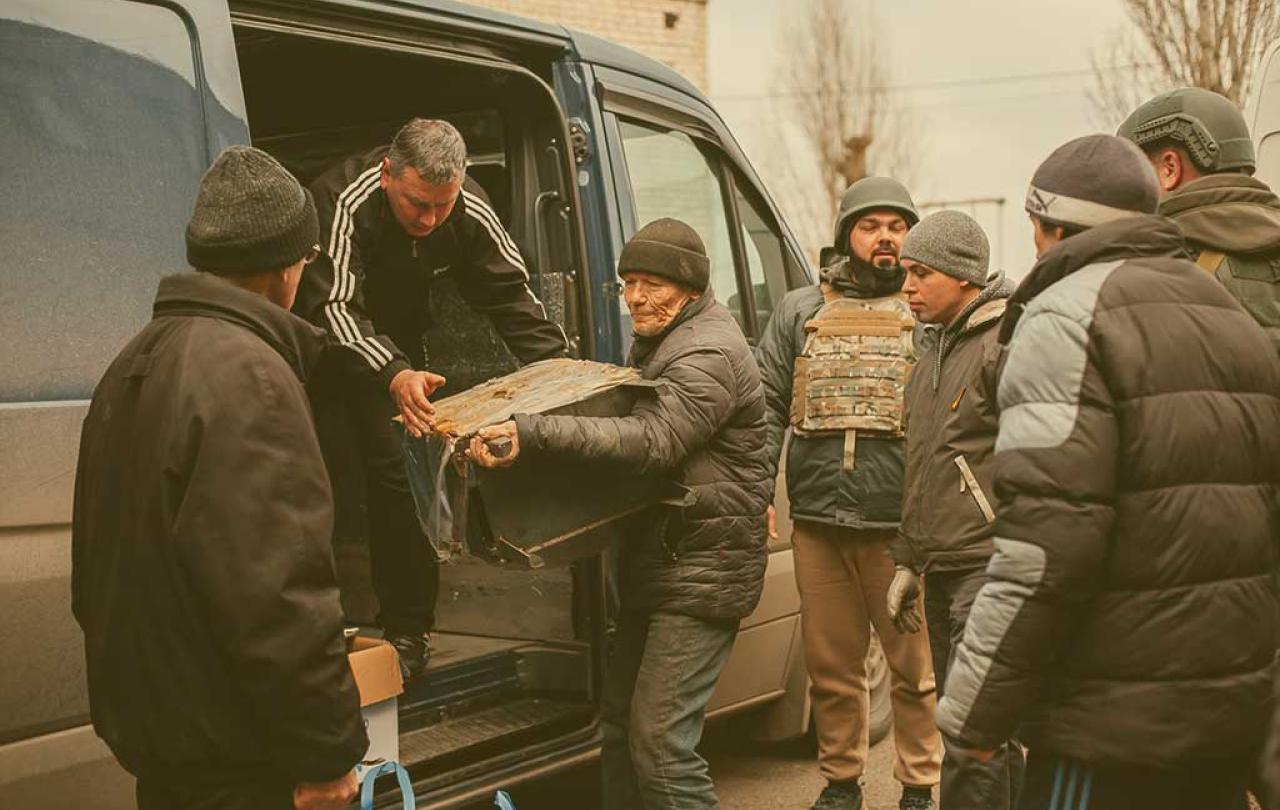
In the first few months of the war, TV news showed the pictures we have come to expect of civilians caught up in conflict: rapid evacuations, temporary shelters and soup kitchens as millions left their homes for safety. Donations poured in from around the world to pay for this response.
Christian Aid was at the heart of this by channelling donations to our Ukraine partners such as Hungarian Interchurch Aid (HIA) and HEKS-EPER of the Swiss German church. Nothing was easy in those early frantic weeks but these long-established international charities already working in Ukraine had the contacts and legal permits to scale up their support for those on the move.
Months later, those donations are still helping and are paying for different kinds of help as the needs of displaced people evolve. Christian Aid has now made its own direct links to Ukrainian national charity organisations like the Alliance for Public Health (APH).
It’s an umbrella organisation supporting even smaller partners on the ground and through them Christian Aid has pioneered and applied a community-led way of working. It involves displaced people deciding for themselves their own priorities for the kind of support they need. In short, international charities must do more listening and less telling.
The advantages of this approach, known as survivor and community led response or “sclr” are remarkable. Instead of large impersonal and distant support, agencies are going down to the micro-level of organisation such as church groups, village councils and school parents.
To succeed, local people need to collaborate on what they want, how to do it and who to involve. It breeds community cohesion, empowerment, and self-help.
These small, community-level groups know much better their urban or rural needs. For example, Christian Aid small grants of a few hundred pounds, for APH and Heritage organisations in Odesa, bought playground equipment for a children’s centre and a generator to draw water from a well in a recently liberated village.
Instead of relying on big blobs of non-transparent funding sloshing around vulnerable to fraud and waste, small groups of individuals are much more accountable to each other. Although no system is perfect, locals will know if the cash has been spent because the playground equipment and generator are there or they’re not.
It’s not just about receiving aid. The process itself brings people together by repurposing existing civil society groups or supporting new ones where Ukrainians have joined up to help those who have left occupied regions.
To succeed, local people need to collaborate on what they want, how to do it and who to involve. It breeds community cohesion, empowerment, and self-help - especially among women having to operate without their partners. One microgrant provided by Christian Aid to a local kindergarten was used to pay skilled locals to build an internal staircase to a kindergarten bomb shelter.
The sclr concept has been evolving since it was first used after the Haiti earthquake but the scale of the war in Ukraine has supercharged its application because it can be replicated easily by Christian Aid’s network of faith and non-faith Ukrainian partners across the country. It’s also being enthusiastically adopted by Christian Aid’s bigger partners like HIA and HEKS. They too can see the advantages of moving beyond “traditional” humanitarian support.
Christian Aid believes this community-led approach is a message of hope for the future as Ukraine moves away from its post-Soviet past. It’s a model for a civil society after the war where local people are entrusted and empowered to decide their own futures. It’s also a model that we’d like to see more aid agencies copy in other global crises.
Who knows, that in an age of government and institutional distrust, it might even be an approach that could be adapted to revitalise grassroots democracy in the UK.
Find out more about Christian Aid's work on empowering locally-led action in Ukraine.




